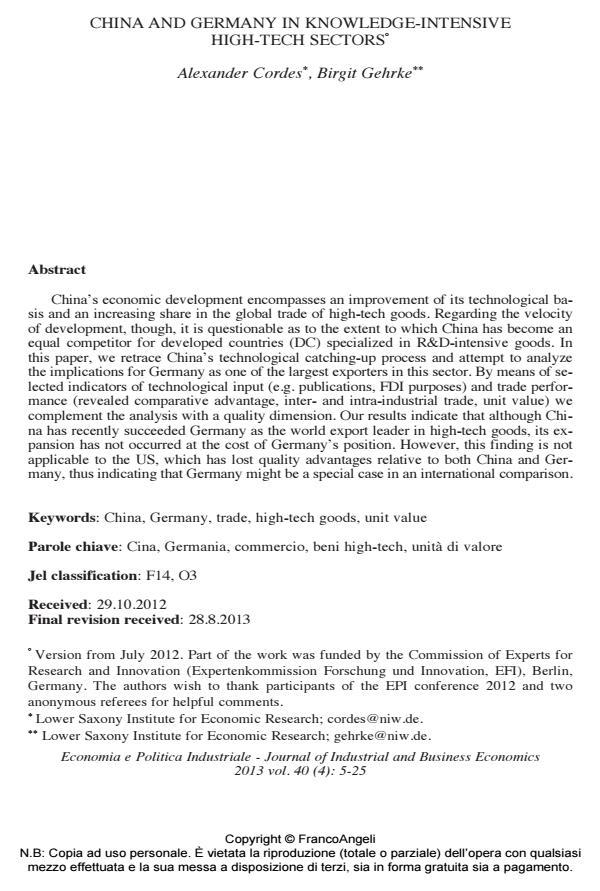China and Germany in knowledge-intensive high-tech sectors
Titolo Rivista ECONOMIA E POLITICA INDUSTRIALE
Autori/Curatori Alexander Cordes, Birgit Gehrke
Anno di pubblicazione 2014 Fascicolo 2013/4
Lingua Inglese Numero pagine 21 P. 5-25 Dimensione file 318 KB
DOI 10.3280/POLI2013-004001
Il DOI è il codice a barre della proprietà intellettuale: per saperne di più
clicca qui
Qui sotto puoi vedere in anteprima la prima pagina di questo articolo.
Se questo articolo ti interessa, lo puoi acquistare (e scaricare in formato pdf) seguendo le facili indicazioni per acquistare il download credit. Acquista Download Credits per scaricare questo Articolo in formato PDF

FrancoAngeli è membro della Publishers International Linking Association, Inc (PILA), associazione indipendente e non profit per facilitare (attraverso i servizi tecnologici implementati da CrossRef.org) l’accesso degli studiosi ai contenuti digitali nelle pubblicazioni professionali e scientifiche.
China’s economic development encompasses an improvement of its technological basis and an increasing share in the global trade of high-tech goods. Regarding the velocity of development, though, it is questionable as to the extent to which China has become an equal competitor for developed countries (DC) specialized in R&D-intensive goods. In this paper, we retrace China’s technological catching-up process and attempt to analyze the implications for Germany as one of the largest exporters in this sector. By means of selected indicators of technological input (e.g. publications, FDI purposes) and trade performance (revealed comparative advantage, inter- and intra-industrial trade, unit value) we complement the analysis with a quality dimension. Our results indicate that although China has recently succeeded Germany as the world export leader in high-tech goods, its expansion has not occurred at the cost of Germany’s position. However, this finding is not applicable to the US, which has lost quality advantages relative to both China and Germany, thus indicating that Germany might be a special case in an international comparison.
Parole chiave:Cina, Germania, commercio, beni high-tech, unità di valore
Jel codes:F14, O3
Alexander Cordes, Birgit Gehrke, China and Germany in knowledge-intensive high-tech sectors in "ECONOMIA E POLITICA INDUSTRIALE " 4/2013, pp 5-25, DOI: 10.3280/POLI2013-004001